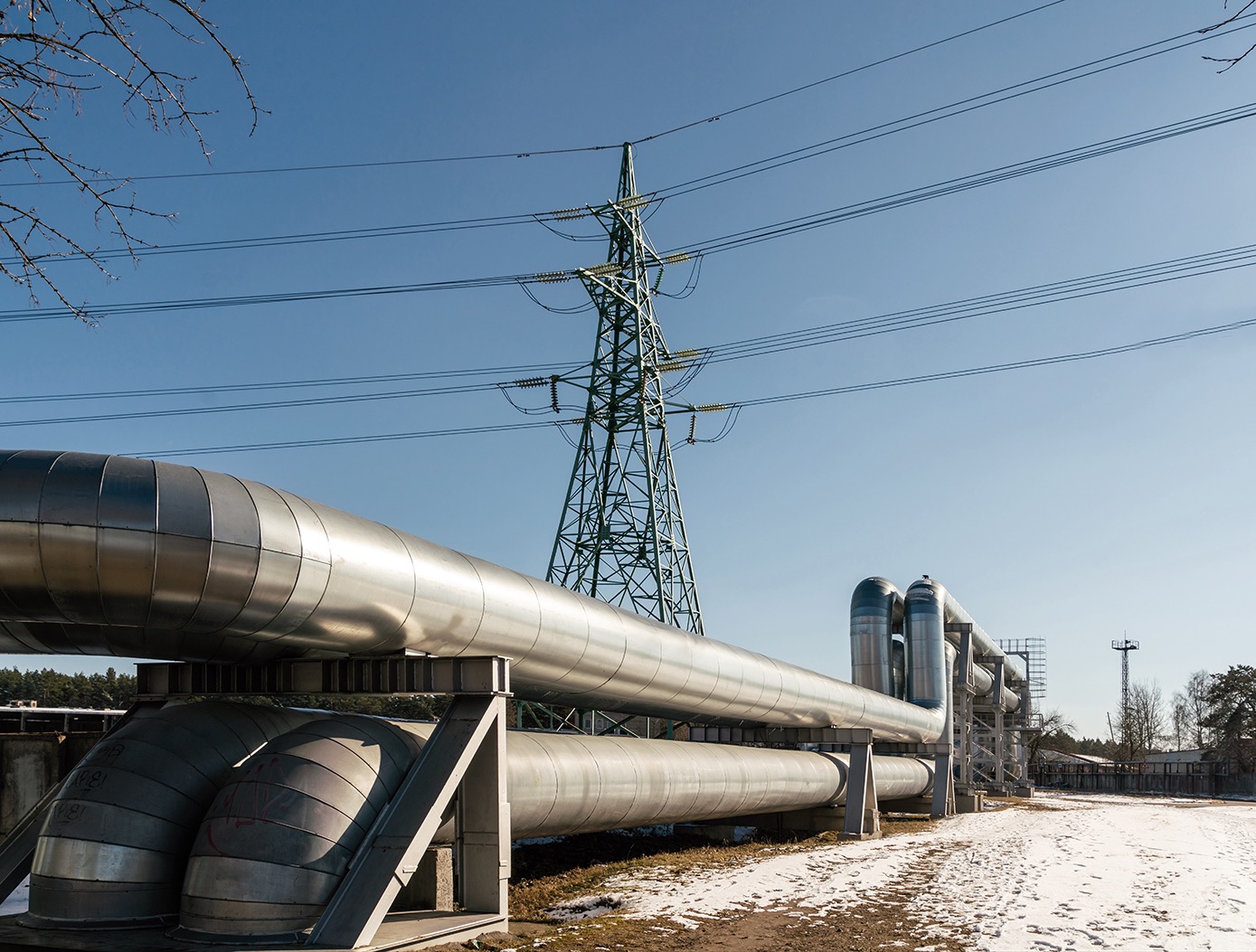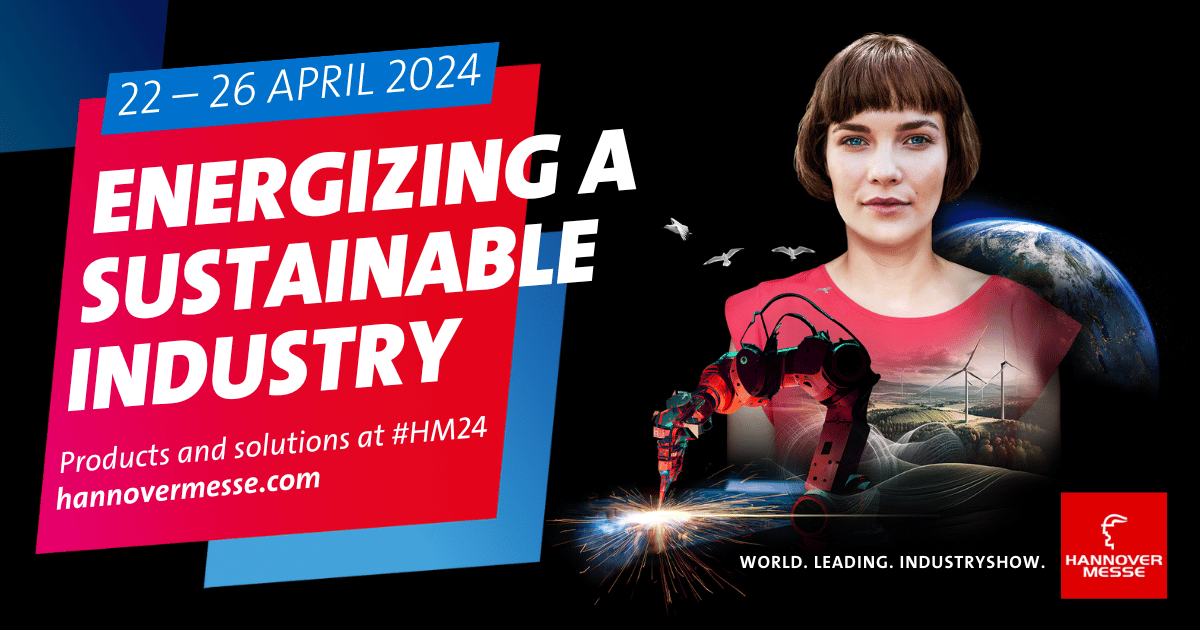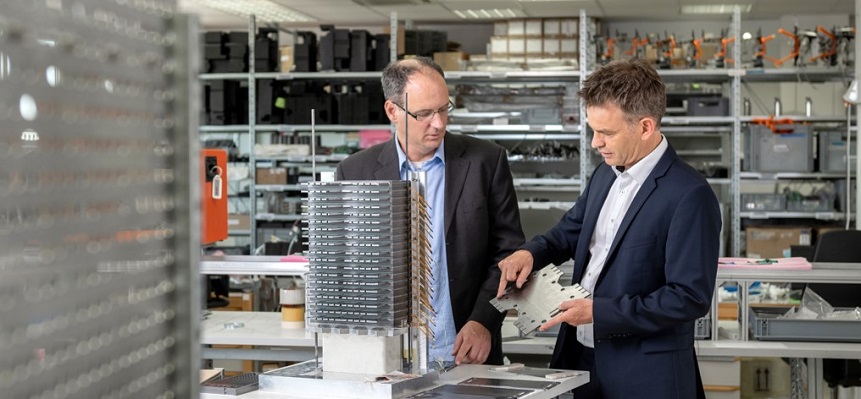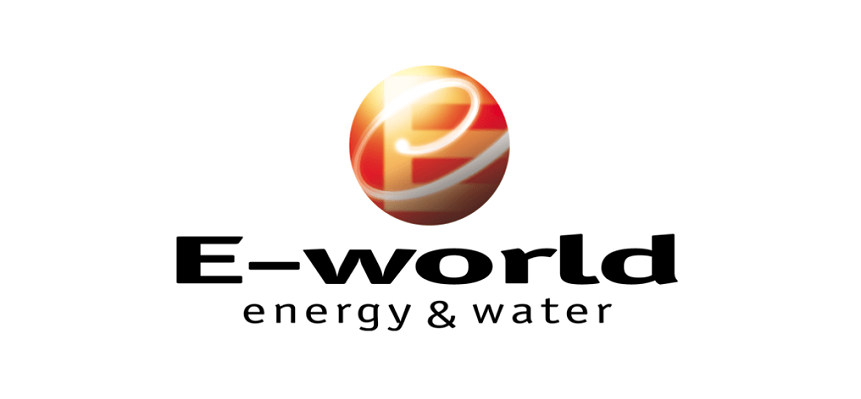Siqens supplies EHS technology for a joint project with the Helmholtz Institute Erlangen-Nuremberg and the Institute for Energy Technology (IfE) at the East Bavarian Technical University Amberg-Weiden
München – Green energy is the mainstay of a future-oriented energy supply in the Lower Franconian district town of Haßfurt. When it comes to solar and wind power, the district town has been playing a pioneering role in the state for years. Since 2016, Stadtwerke Haßfurt has been producing hydrogen with an electrolyzer that is powered by excess electricity from wind power. Now the people of Haßfurt want to develop another source of hydrogen – the municipal gas network. The company Siqens, a specialist in hydrogen infrastructure solutions, is now implementing its first commercial project in Haßfurt together with the Helmholtz Institute Erlangen-Nuremberg (HI ERN) and the Institute for Energy Technology (IfE) at the East Bavarian Technical University Amberg-Weiden Hydrogen separation from the municipal gas network.
The Lower Franconian district town has been relying on renewable energies since the 1990s. Sun and wind power are the focus of green energy supply. There is also biogas produced by some local farmers. In addition, Stadtwerke Haßfurt uses the municipality’s gas network to use hydrogen as a further component of a future-oriented energy supply.
Green hydrogen is playing an increasingly important role in CO2-free energy supply. For the city of Haßfurt, the Helmholtz Institute Erlangen Nuremberg (HI ERN) and the Institute for Energy Technology (IfE) have developed a joint project to further expand the current use of hydrogen in the district town’s gas network. Siqens GmbH, a provider of methanol fuel cells as well as solutions for hydrogen separation and purification, supplies the technology for the project with its high-temperature HT-PEM stacks. The hydrogen is separated, compressed and stored from the gas network in the city of Haßfurt. A fuel cell is used for subsequent electricity generation.
The Munich-based company’s solutions are based on the patented electrochemical hydrogen separation technology (EHS). This offers a cost-effective method for producing high-purity hydrogen from local resources. “Using the EHS process creates highly pure hydrogen that can be used directly in fuel cells,” explains Siqens CEO Dr. Thomas Klaue. “Even if the gas mixture used is contaminated, our high-temperature stack delivers high-purity hydrogen thanks to its special robustness, which is not the case with most other technologies.”
Hydrogen from different sources
The EHS process can be used to separate hydrogen from natural gas, town gas, methanol or biogases. Noble gases such as helium, which contain hydrogen as an “impurity”, can be “cleaned” with EHS so that helium and hydrogen can each be marketed at a high quality. Conversely, EHS is able to raise contaminated hydrogen to a higher purity level. This means that a large number of natural reservoirs are available for producing hydrogen using the EHS process.
The flexibility of the EHS technology was an important selection criterion for HR EIN and IFE in order to implement the hydrogen project in Haßfurt quickly and cost-effectively. “We are pleased that we can make a contribution to the future-oriented hydrogen supply for cities and communities with our EHS technology,” comments Dr. Steal his company’s commitment to Haßfurt. “We are convinced that hydrogen supply via the gas networks will also set a precedent in other municipalities and that an important step towards climate neutrality has been taken.”
About Haßfurt municipal utilities:
The full integration of renewable energies can only be achieved together. A guide that Stadtwerke Haßfurt GmbH takes to heart. It is not for nothing that the company is one of the most innovative municipal utilities in Germany. It is one of the few that generates over 200% renewable energy and can also distribute it within its own urban area. Original technology, perseverance and the courage to try new things have made the municipal utility a pioneer of the energy transition. Stadtwerk Haßfurt GmbH is therefore continuously working on sharpening its corporate strategy, which is based on 100% regionality, sustainability and security of supply. With the renewable generation systems, large energy storage systems and the power-to-gas system, you can prove that the energy future begins today.
About the Helmholtz Institute Erlangen-Nuremberg for Renewable Energies (HI ERN):
The HI ERN researches and develops material and process-based solutions for the climate-neutral, sustainable and cost-effective use of renewable energies. The institute’s thematic focus is research into electrochemical energy conversion for the development of innovative hydrogen technologies and solar technologies. The HI ERN forms the core of a close partnership between the Research Center Jülich, the Helmholtz Center Berlin for Materials and Energy and the Friedrich-Alexander University Erlangen-Nuremberg. The aim of the cooperation is to closely link the excellent materials, energy and process research of the partner institutions. The partners’ collaboration relates to the areas of innovative materials and processes for photovoltaic energy systems and hydrogen as a storage and carrier medium for CO2-neutral energy. The HI ERN makes an important contribution to the energy transition through interdisciplinary collaboration. More at https://www.hi-ern.de
About the Institute for Energy Technology (IfE) GmbH at the East Bavarian Technical University Amberg-Weiden:
The IfE’s work focuses on advising politicians, municipalities, energy supply companies and industrial companies in the areas of energy efficiency, renewable energies and combined heat and power. The focus is on the analysis of energy consumption structures, the identification of potential for increasing efficiency and decentralized energy generation and the development of efficient energy supply solutions as well as their technical, economic and ecological assessment. In addition to the conceptual work, the IfE conducts practical research and development in the field of combined heat and power and renewable energies and puts the knowledge gained into practice within the framework of model and demonstration projects with scientific and measurement support.
About Siqens:
SIQENS, founded in Munich in 2012, develops and produces methanol fuel cells. The systems are used to supply emergency power to critical infrastructures and in places without a permanent connection to the power grid. The SIQENS Ecoport fuel cell system is operated with liquid, easily available methanol. Hydrogen is produced from the methanol in the Ecoport. This reacts with oxygen in the SIQENS stack and generates electrical energy. Combined with a battery that the Ecoport automatically recharges when necessary, an EcoCabinet is created as an independent, reliable power source. In contrast to diesel generators, fuel cells are economical, require little maintenance and emit neither particulate matter nor nitrogen oxides, as well as significantly reduced CO2 emissions. Methanol from renewable sources even enables completely climate-neutral operation.





